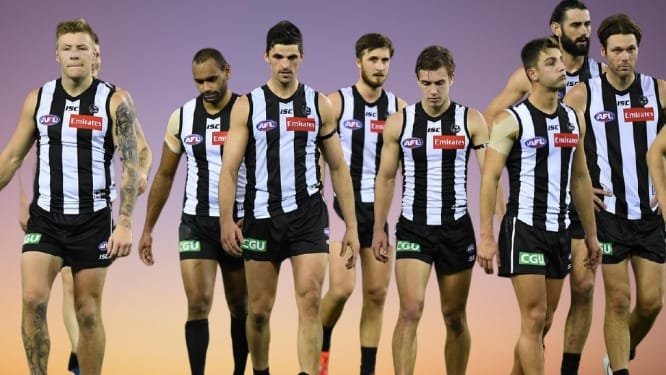Who Owns the Collingwood Football Club?
The Collingwood Football Club, one of the most iconic teams in the Australian Football League (AFL), has a rich history and a loyal fan base. Founded in 1892, the club has established itself as a powerhouse in Australian rules football. However, when it comes to ownership, the structure is quite unique compared to many sports teams globally.
A Club-Owned by Its Members
Unlike some sports teams that are owned by private individuals or corporations, Collingwood Football Club is a member-owned organization. This means that the club doesn’t have a single owner or a group of shareholders. Instead, it is owned collectively by its members — the fans who have chosen to support the club by purchasing memberships. The members have a say in major decisions related to the club, primarily through voting rights at the Annual General Meeting (AGM).
At the AGM, members vote on key issues, including electing board members who are responsible for running the club. This democratic approach gives fans a direct stake in the club’s future, making it a community-driven entity.
The Role of the Board of Directors
While the members technically own the club, day-to-day operations and strategic decisions are overseen by the Board of Directors. The board is elected by the members and typically consists of individuals with experience in business, sports management, and other relevant fields. Their responsibility is to ensure that the club is managed effectively, both financially and competitively, ensuring long-term success on and off the field.
The board appoints a President, who acts as the public face of the club and plays a crucial role in guiding its direction. As of recent years, Jeff Browne has taken over the role of President, succeeding Eddie McGuire, who had a long and impactful tenure from 1998 to 2021.
Collingwood’s Financial Structure
Collingwood Football Club generates revenue through several streams, including memberships, ticket sales, sponsorship deals, and merchandise sales. The club also benefits from its association with the AFL, which distributes revenue to teams as part of the league’s central agreements, such as broadcast rights deals.
Despite being owned by its members, Collingwood operates as a professional organization. It manages a significant budget to ensure that the team remains competitive and financially viable. This includes player salaries, stadium maintenance (the club calls the Melbourne Cricket Ground home), and investing in youth development programs to nurture the next generation of stars.
Corporate Sponsorship
Sponsorship plays a vital role in the financial health of Collingwood Football Club. Major corporations like Emirates and Nike have been long-time sponsors of the club, providing significant financial support that helps cover operational costs. These partnerships are crucial for a club of Collingwood’s stature, allowing it to compete at the highest level in the AFL.
The Importance of Fan Ownership
The fan ownership model has helped maintain the unique identity of Collingwood Football Club. It fosters a strong connection between the team and its supporters, who feel directly involved in the club’s journey. Unlike privately owned clubs, where decisions can sometimes be made in isolation from fan interests, member-owned clubs like Collingwood are much more accountable to their supporters.
This model also provides stability, as the club is not reliant on a single wealthy benefactor who might withdraw support. Instead, the collective power of the members ensures that the club remains financially secure and is governed with the fans’ best interests at heart.
Eddie McGuire’s Legacy
A discussion about Collingwood’s ownership wouldn’t be complete without mentioning Eddie McGuire. While he didn’t own the club, his influence as President from 1998 to 2021 was so significant that he often felt like the face of ownership. McGuire is widely credited with modernizing Collingwood and turning it into a financial powerhouse.
During his time as President, McGuire played a pivotal role in securing lucrative sponsorship deals, overseeing major upgrades to the club’s facilities, and helping to expand the club’s brand both nationally and internationally. His leadership was not without controversy, but there’s no doubt that he left an indelible mark on the club’s history.
Conclusion
Collingwood Football Club remains one of the most beloved and successful clubs in Australian rules football, with a rich history dating back over a century. Unlike many clubs worldwide, Collingwood is proudly owned by its members, making it a community-focused organization. Through member ownership, a dedicated board of directors, and strong corporate sponsorship, the club is well-positioned to continue thriving both on and off the field. While the President and board are responsible for leading the club, it’s ultimately the fans who own and help shape its future.
Advertisements
